The six pou of Mata Ārahi Manomano drive the questions we have used to profile Māori & Pacific role models, like Jason, in the Service sector.
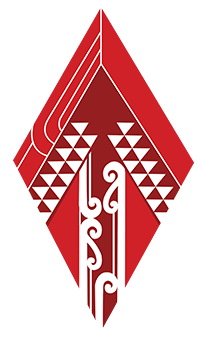
|
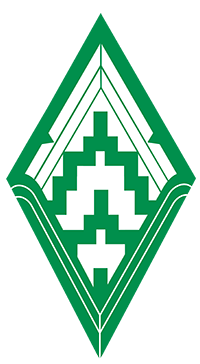
|
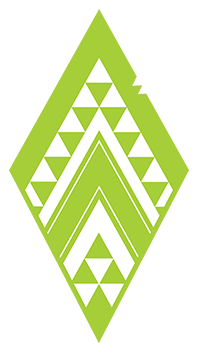
|
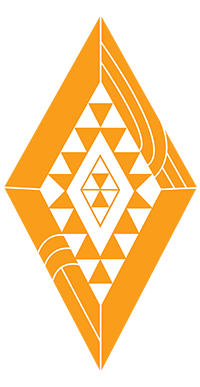
|
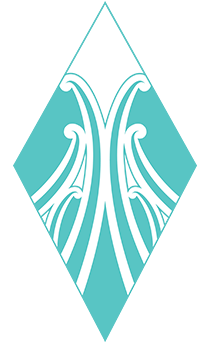
|
|

Representing the levels and forms of aroha that can be found throughout our lives across our many communities. We acknowledge the wide range of obstacles and the journey it takes to overcoming everything that stands in our way to expressing aroha within.
Tua tahi. E mihi kau atu ana ahau ki o tātou atua, ngā tōna ringa ka puta mai tātou katoa. Ka noho i runga i tenei ao.
No reira kia koe e hoa o to mana tēnā koe.
He aku mihia ki a rātou kua taka ki te po
Rātou kua noho marire ki runga ki tēnei ao
Engari kua to rātou waka wairua ka tua te arai
a i reira o tātou mātua tipuna e tatari ana kia rātou.
No reira koutou mā haere haere haere
Tēnei te mihi aroha nui rawa atu ki o tātou kingi Māori. Kia koe Tūheitia, tēnei te Whakatōhea e tangi atu ana mo hau tēnei rā mo hau me to whānau e pani ana mo to ngarotanga me to riro ki to mama. Te Atairangikahu.I reira ia ki runga i ngā rangi tūhāhā e tatari ana mau i tēnei rā.
No reira waihotia nei mātou te hunga ora ki kōnei ki runga i tēnei ao ki runga ki tenei ao kikokiko mā mātou e tiaki ia mātou manaaki i to whānau. He tangi atu nei. No reira e tangi an ano hoki mātou, kei tā rātou ano No reira te kahu ariki kia kaha rā. Kia mau tonu i ka maumaharatanga. E pa ana ki o tātou kingi Māori. A no reira tenei ano hoki ahau e tuku atu ngā mihi kia koe te mareikura Ka tono kia noho ki roto i tenei uiui he koreroreo tēnei He korero tenei pa ana ki ngā huarahi kei mua i ahau. Ka noho whakaiti ahau i tenei wā. Kua whiriwhiria e koe i ahau. Korero tahi.
He tamaiti he mokopuna ahau ki taku tipuna tapairu o Muriwai. No reira i tau mai nei o tātou to taua tipuna i runga i te waka o Mataatua. A ka tae mai ia, kua tae mai rātou me tana whānau ki runga i tēnei motu o Aotearoa. A ka tau te waka o Mataatua ki runga i ngā tae o Whakatane. No reira E Muriwai tēnei ka tuku ngā mihi kia koe E mokopuna ahau o te Whakatōhea o Mataatua waka. No reira ko Jason Kurei taku ingoa.
I sometimes introduce myself as being mokopuna of Muriwai. A mokopuna of my koro on my dad’s side Bob and Conny Kurei and a mokopuna of Paul and Wharetunoa Puha on my mum’s side. My mum is Girlie, and my dad is Paulie, and I have one sister Kim and heaps of whangai brothers and sisters.
I tipu ake ahau ki taku whenua taone kura o Opotiki ki roto i tōku iwi Te Whakatōhea.
I think one of my greatest strengths is to be respectful. To think with love, and to act with love, regardless of what might be put in front of you. And so, it’s always been my guiding pou.
I think there’s a lot of weaknesses that we have and one is our humility. There might be some people who see it as a weakness because they prefer you to be strong and humility is not often considered a characteristic of strength, but in my view, while I’m saying it’s a weakness, it’s also a strength.
I love to have fun. I love to look brainy. I love to pretend to be brainy, ha-ha. I think the whole thing is around engaging with people. There’s this thing I learnt from a wahine wairua, wahine hinengaro, she said: ‘In order for you to connect with people you always have to try and find their rhythm.’ And that’s how I want to engage with people, cause I wanna be able to connect and engage with them in their way.

Seeking guidance from our kaitiaki Hiwa-i-te-rangi, we take a journey through our different aspirations, goals and dreams. This tohu acknowledges hard work, wisdom, the reach of ones goals and the desire that comes from this mahi.
When I was a kid I wanted to be Prime Minister, I wanted to be the President of America. Then you know, I wanted to be a fireman, and a policeman.
But then I went to college and I just wanted to do things that gave me joy. And one of those things was learning a language that was stolen from me – though I didn’t realise it at that time. We had an amazing person at our school, Tawhiro Maxwell, who taught me a reo that I didn’t know was there. A lot of things that I started doing was Māori centric.
At university I took political science in public administration and Māori. After graduating, I kind of took a sabbatical for a year, because my koro was sick and he needed his family around him. Nursing my koro in his last six months was when I saw what whānau does to look after each other.
That was the first time I’d seen manaakitanga – an integrated mountain of support around this one person. I realised the value of our culture, our identity and our tikanga and how it plays in bringing people together.
That helped drive my career quest: what’s the type of career I can go into where I can look after people? So, when I found myself in ACC, where I originally started as a case manager, I wanted to do other things.
I started focusing on carving out my career and a pathway of building cultural capability and capacity throughout ACC, where Māori is the focal point of that development journey. But my chosen career path is about teaching people the beauty of my culture.

With adventure comes challenges as well as obstacles to overcome. We stand proud as we overcome these obstacles. This tohu draws inspiration from the Niho Taniwha and Aramoana patterns. We acknowledge reaching our destination and preparing ourselves for the many new adventures ahead.
Being a case manager was something that I hadn’t really thought I wanted to go into. In frontline, you’re supporting people who have real life struggles. When you’ve got an injury, you can’t go to work and you need to go to a doctor, you need support, you’ve lost money and there’s a whole range of issues and challenges that are put in front of you through no fault of your own. And with that, you have emotional journeys along the way.
One of the most impactful things I learned as a case manager is that it ties into the whole idea of aroha, because back then my maturity about how I thought about things like how to Manaaki, was low or not hugely developed.
One of my early clients was from Tokoroa and had broken his leg. While I was trying to help process his claim it took me a long time because I was learning at the same time. But the thing he said that really made a difference was “I’m not a number, I am a person”. I agreed, and I actively tried to ensure I looked after him and everybody else’s claims to the best of my ability.
I went into our cultural space, particularly our Māori space, where I was managing a team of what we called Pae Ārahi. We were essentially cultural liaisons, so the connection between the Māori community and ACC. These Pae Ārahi mana in their respective communities.
I learnt so much about our culture, and the diversities in our own culture from Te Hiku o te Ika, through to Te Waipounamu whanui. And I’ve been bringing all of that into my future pathways.

These patterns represent bravery and being strong in the face of adversity. We strive to be persistent and positively challenge anything that threatens to alter, restrict, and put a barrier in the way of our desired pathway.
As a taiohi I was being disrespectful to some men who I thought were disrespecting my koro. My koro said to me, don’t speak like that and I go yeah papa, they’re being rude to you and trying to undermine you. And he goes, “what they do is what they do. But what’s more important is what you do.”
So, always, always treat people with love and act with love. I see that in my dad, he is genuinely a beautiful person. Everybody is an amazing spirit to my dad. He never sees anything bad about people.
My koro was how my dad is and I’m wanting to be like that. But it’s a bit hard cause there’s my mum’s spirit of justice battling with my dad’s spirit of compassion.
You can always use tika, pono and aroha to manage challenging situations. Act with integrity, with honesty, with aroha, and with the purpose and you will get benefit.

Here we are drawing inspiration from the Pūhoro pattern. The pūhoro is used here to represent the strength, speed and agility needed to move forward and accomplish ones goals.
My current role is Senior Advisor in the Treaty space. For me it’s always just been about tapping into your wairua and let your wairua guide you. I’m never structured, I’m never planned. Trust in your intuition and trust yourself.
Your wairua helps you be agile and to flex and pivot in places where you might not have really planned for. So, for example if there’s like a storm in the way. Then your wairua, intuition, skills, experiences are gonna tell you how to deal with that storm. In reflecting on applying for the roles I have applied for, the only thing you should fear is being successful.
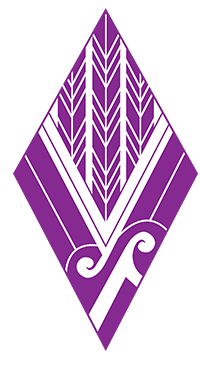
Success, best mentioned in the whakatauki “Tūwhitia te hopo, mairangatia te angitū!” Feel the fear and do it anyway!
It’s just really simple. We always have aroha, tika and pono, act with care, integrity, and honesty. Look at what you believe to be to be right in that space as well. So, you know that that tika, pono and aroha are always with me.
If you are ever ready to look for a new job, send out 10 CVs to 10 employers with whatever you want to do, cause the worst thing that will happen is not that you will get a no but that you will get a yes and that’s when the hard work starts.